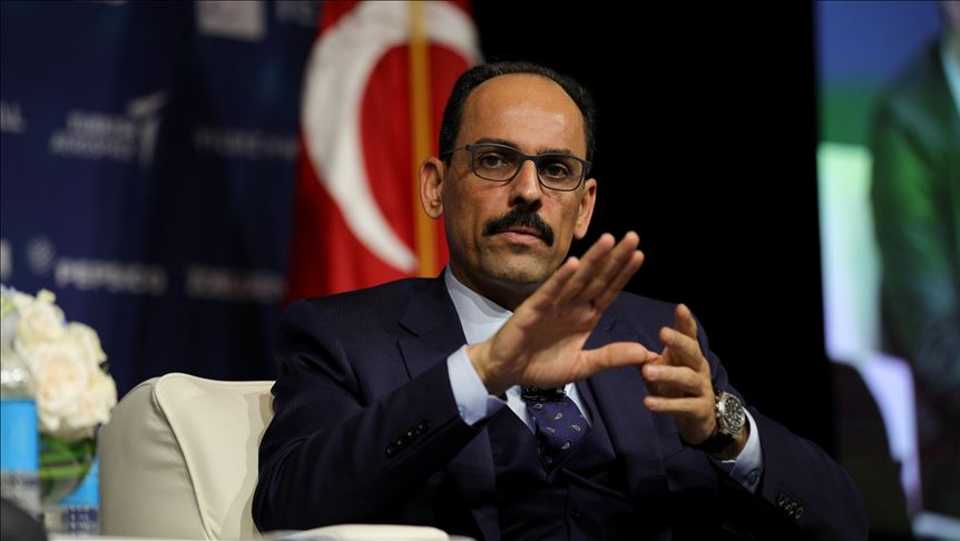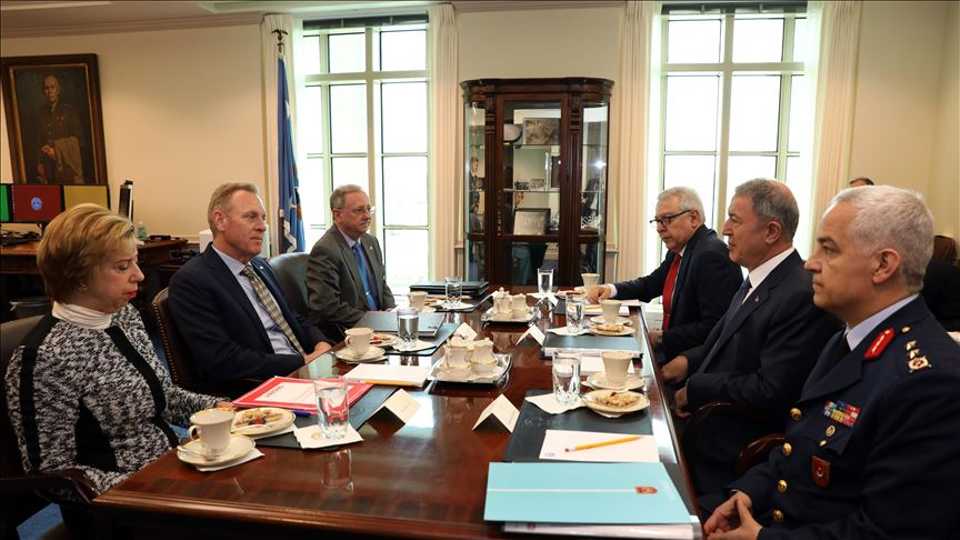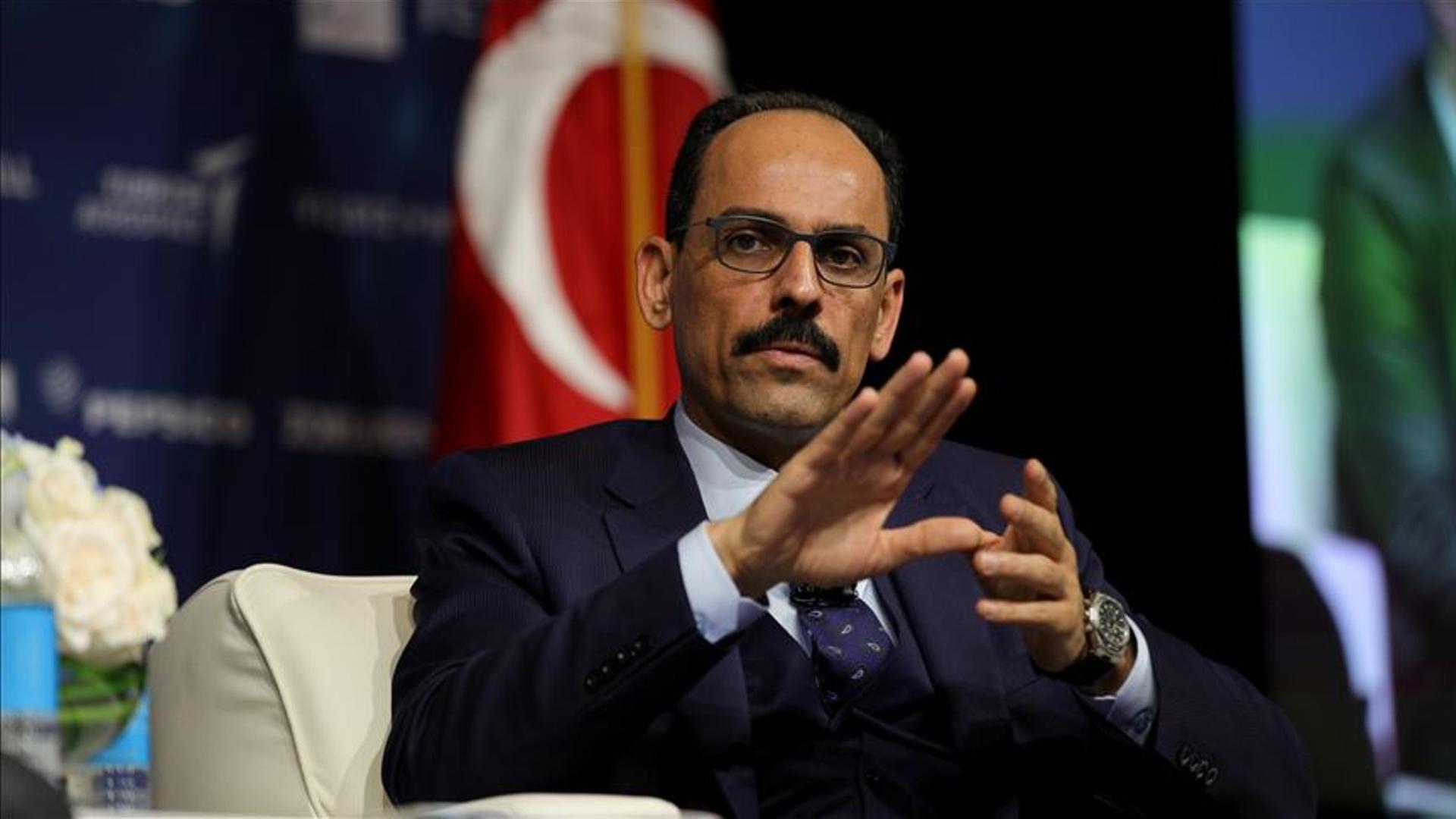
Ankara expects the Trump administration to extend an existing sanctions waiver that is set to expire early in May to allow Turkey to continue importing Iranian oil, Turkey’s presidential spokesman Ibrahim Kalin said on Tuesday.
The Trump administration reimposed oil sanctions on Iran in November following Trump’s decision to unilaterally pull the US out of a landmark 2015 nuclear pact that world powers struck with Iran.
Along with sanctions, Washington has also granted waivers to eight economies that had reduced their purchases of Iranian oil, allowing them to continue buying it without incurring sanctions for six more months. They were China, India, Japan, South Korea, Taiwan, Turkey, Italy and Greece.
Speaking to reporters in Washington, Kalin said Turkey has already reduced its purchases of Iranian oil, without providing a level. Ankara has conveyed its message that its waiver should be extended, Kalin said.
“We made it clear that only we’d like to continue buying oil from Iran but also Iran is a neighbouring country … People should not expect Turkey to turn its back on Iran just like that,” he said.
Turkey did not support US sanctions policy on Iran and did not think it would yield the desired result, Kalin said.
S-400 technical committee still on table
Turkey’s proposal to form a committee to examine technical concerns about its procurement of an advanced Russian missile defence system is still under consideration, its presidential spokesman said Tuesday.
“And our proposal to establish this technical committee under the NATO umbrella is still on the table. We are waiting to hear from our US colleagues and from NATO,” Ibrahim Kalin told reporters at the Turkish embassy.
“Because we wouldn’t want to have our F-35 program jeopardised in any way by the S-400 or any other system.”
Tensions between the US and Turkey have reached a fever pitch in recent months with Turkey set to begin receiving the advanced S-400 Russian surface-to-air missile system that Washington said will jeopardise Turkey’s role in the F-35 fighter jet program and which could trigger congressional sanctions.
The US already suspended deliveries of parts and services related to Turkey’s receipt of the multi-million dollar fighter jets.
Following protracted efforts to purchase an air defence system from the US with no success, Ankara decided in 2017 to purchase the Russian S-400 system.
US officials advised Turkey to buy the US Patriot missile system rather than the S-400s from Moscow, arguing that the Russian system would be incompatible with NATO systems and expose the F-35 to possible Russian subterfuge.
Turkey, however, has emphasised that the S-400 would not be integrated into NATO systems and would not pose a threat to the alliance.
Kalin stressed that Turkish experts have said the S-400 would not “jeopardise” the F-35, reiterating that Ankara wants to remain part of the F-35 program.
In addition to facing possible expulsion from the F-35 program by the US, Turkey is also likely to face sanctions under a 2017 sanctions law should it take delivery of the S-400 system.
Kalin said President Erdogan and other Turkish officials have been urging Trump to use a presidential exemption to spare Turkey from sanctions under legislation known as the Countering America’s Adversaries Through Sanctions Act (CAATSA), which is aimed in part at Russia’s defence industry. The exemption allows Trump to bypass the mandated sanctions should he determine it is in US national security interests to do so.
“If it comes to it, of course, we would expect President Trump to use his waiver,” Kalin said. He stressed that he could not speak for Trump or other US officials but said that Trump had promised Erodgan that he would personally look into the situation. Kalin said he expected delivery of the S-400 system to be completed within 2 to 3 months.

“We are expecting an extension for Turkey,” Kalin said. “We have conveyed this message to our US colleagues.”
Turkey is one of seven countries, in addition to Taiwan, that were granted waivers when the penalties were reimposed, but those are set to expire May 2.
The Trump administration has not signalled one way or another on whether those exemptions will be extended.
No need YPG/PYD
Turning to a safe zone being mulled for northeastern Syria, Kalin said the US and Turkey “are making progress,” noting “positive signals” being received from Washington on the matter, but stressed the US needs to end its support to the YPG/PYD, the Syrian affiliate of the PKK—a designated terror group in the US and Turkey.
“The US needs to have a change of course there because we don’t need the PYD/YPG to establish peace and security in any part of Syria,” Kalin said, using a name for the group that includes its political wing.
Citing the defeat of the Daesh terror group, Kalin said “there is no reason to continue military support, training support or financial support for the PYD/YPG”.
“We do not want to see Daesh come back in any form or shape. Let’s be clear about that. And we are ready to give them a big fight wherever they show up,” he said.










Discussion about this post